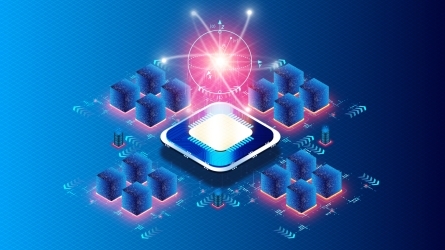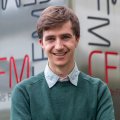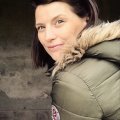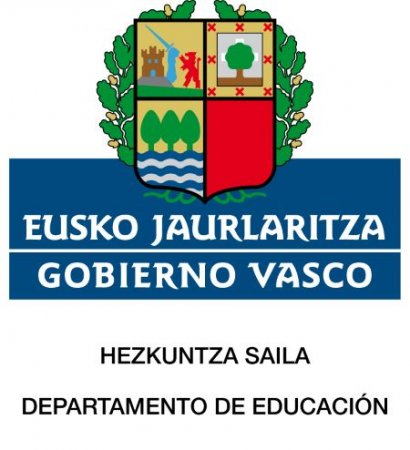
XXIst International Workshop on Quantum Atomic and Molecular Tunneling Systems (QAMTS24)
Descripción
Tunneling phenomena are of importance in a wide range of fields in the physical, chemical, biological and computational sciences. The present series of Workshops has always been highly cross-disciplinary. It encompasses work on tunneling of protons and heavier species in gas and condensed phases, in general, including biological systems, chemical reactions, transport phenomena in solids and liquids and in systems of lower dimensionality.
The scientific program will include, but is not limited to, the following topics:
• Proton tunneling in hydrogen bonds
• Tunneling and proton transfer in biomolecular systems
• Kinetic isotope effects
• Vibrational rotational tunneling dynamics in molecules and clusters
• Tunneling in quantum ferroelectrics and paraelectrics
• Atomic and molecular tunneling in wires, surfaces, glasses and amorphous systems
• Tunneling in porous materials
• Tunneling diffusion phenomena
• Spin-tunneling problems
• Tunneling transport in superprotonic conductors, acids and bases
• Effects of atomic tunneling on electron transport in nanosystems
• Advances in deep inelastic (Compton) neutron scattering
• Advances in NMR, Synchrotron Radiation, and other experimental techniques with applications to tunneling
• Multidimensional tunneling theories
• Quantum annealing (adiabatic quantum computing)
• Advances in computational methods and software updates
• Tunneling in the interstellar medium
ORGANIZING COMMITTEE:
Ricardo Díez Muiño, Donostia International Physics Center, San Sebastian (Chair)
Antonio Fernández Ramos, Universidade de Santiago de Compostela (Chair)
Salvador Miret Artés, Instituto de Física Fundamental CSIC, Madrid (Chair)
Objetivos
We encourage contributions on all phenomena where atomic, molecular, or magnetic tunneling plays an important role, including not only processes in solids and matrices, but also organic and organometallic reactions in liquids, tunneling processes in clusters and nanoparticles, enzyme-catalyzed reactions, and some non-traditional emerging areas.
Público objetivo al que está dirigida la actividad
- Alumnado universitario
- Profesionales
Directoras/es

Salvador Miret Artés
Instituto de Física Fundamental, CSIC
Ponentes

Chiara Donatella Aieta
Università degli Studi di Milano

Zlatko Bacic Bacic
New York University

jianshu cao
MIT

Michele Ceotto
Università degli Studi di Milano

Bo Chen
Donostia International Physics Center

John Ellis
Cavendish Laboratory, Cambridge University

Ion Errea
UPV/EHU
Ion Errea is an Associate Professor at the University of the Basque Country and leads the Quantum Theory of Materials group at the Centro de Física de Materiales. His research focusses on the development of theoretical methods for calculating complex properties of solids, such as quantum and anharmonic effects in atomic vibrations and the electron-phonon interaction, and the application of these methods in hydrogen-based superconductors, thermoelectric materials, phase transitions in solids, nanostructures, etc. He is an ERC grantee, research associate at the Donostia International Physics Center, and member of Jakiunde.

Sofiya Garashchuk
University of South Carolina

Alejandro Gonzalez-Tudela
Instituto de Fisica Fundamental-CSIC

Marta I. Hernández
Instituto de Física Fundamental, Consejo Superior de Investigaciones Científicas (IFF-CSIC)

Pavel Jelinek
Institute of Physics of the AS CR

Elena Jiménez

Sebastian Kozuch
Ben-Gurion University of the Negev

Alberto Lesarri
Universidad de Valladolid

JIAN LIU
Peking University

Roberto Marquardt
Université de Strasbourg

Emilio Martinez Nuñez
Universidade de Santiago de Compostela

Jon Matxain Beraza
UPV/EHU

Robert McMahon
University of Wisconsin-Madison

Karina Morgenstern
Ruhr-Universität Bochum

Cláudio Nunes Manaia
University of Coimbra

Francesco Paesani
University of California, San Diego

Jeremy Richardson
ETH Zurich

Octavio Roncero Villa
Instituto de Física Fundamental (CSIC)

Ad van der Avoird
Radboud University

Gunther Wichmann
ETH Zürich

Sotiris Xantheas
Pacific Northwest National Laboratory

Peter Saalfrank
University of Potsdam, Germany

Marco Sacchi
University of Surrey

Wolfram Sander
Ruhr-Universität Bochum

Steven Schwartz
University of Arizona

Micheline Soley
University of Wisconsin-Madison

Katarzyna Swiderek
Universitat Jaume I
Katarzyna Świderek obtained her PhD with honours in 2011 at the Lodz University of Technology (Poland). During her PhD she was funded by an AXIOM - Marie Curie Host Fellowship with a 3-month contract at the Helmholtz Centre for Environmental Research-UFZ in Leipzig (Germany). After her PhD, she moved to the University of Valencia. In 2015 she was contracted at Universitat Jaume I (UJI) in a project funded by the National Institutes of Health (NIH) coordinated by UJI and the University of Iowa, USA. At the same time, she received the Polish grant “Iuventus Plus” dedicated to talented young researchers (under 35). In 2017 she spent 6 months at the University of Bath (UK). She returned to Spain where she obtained a 2-year Juan de la Cierva-Incorporation contract, a 3-year JIN contract, and in 2022 Ramon y Cajal fellowship. In 2020 she became a leader of the StopProt project that was funded by the GenT-SEJI 2020 program of the Valencian Regional Government. Her professional activity is focused on theoretical studies of enzymatic catalysis. She is co-author of over 75 research publications. In 2019 she was awarded with GEQC-RSEQ.
Precios matrícula
| Registration | Hasta 09-06-2024 |
|---|---|
| 0 EUR | |
| 310,00 EUR | |
| 420,00 EUR |
Lugar
Palacio Miramar
Pº de Miraconcha nº 48. Donostia / San Sebastián
Gipuzkoa
Palacio Miramar
Pº de Miraconcha nº 48. Donostia / San Sebastián
Gipuzkoa






